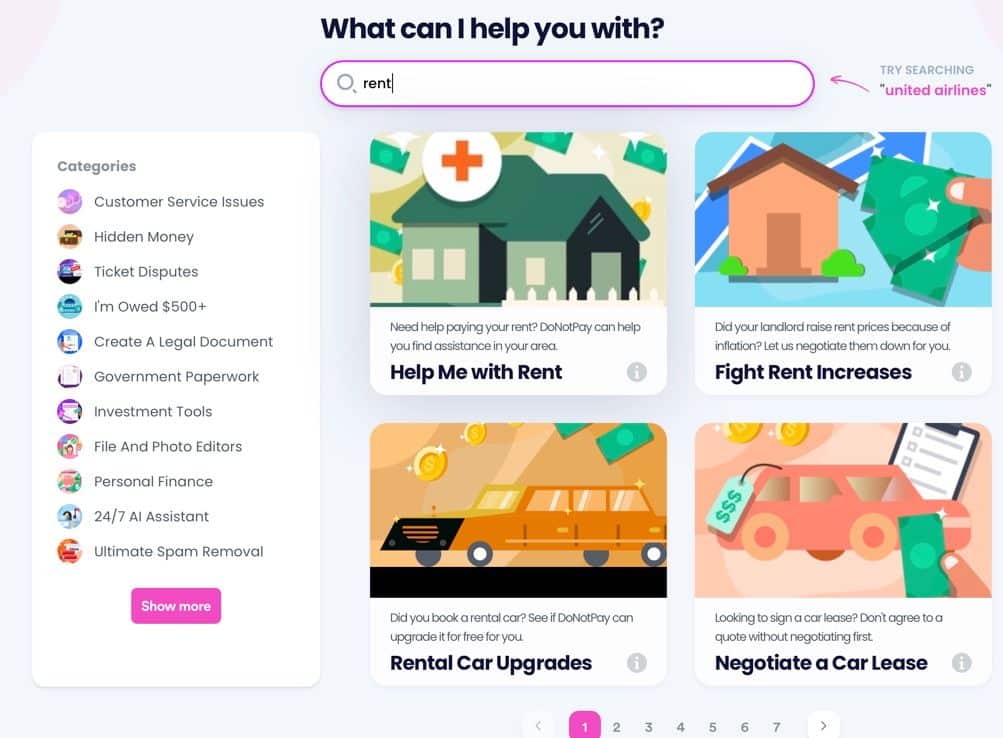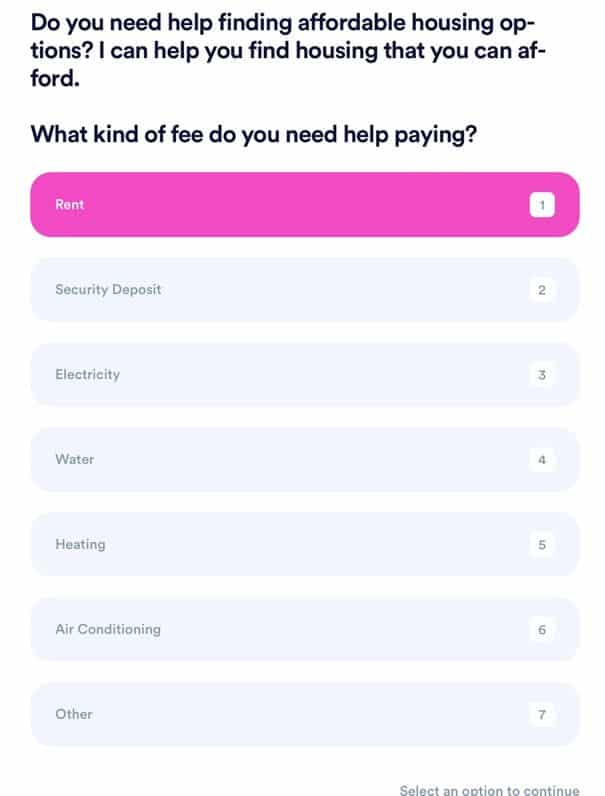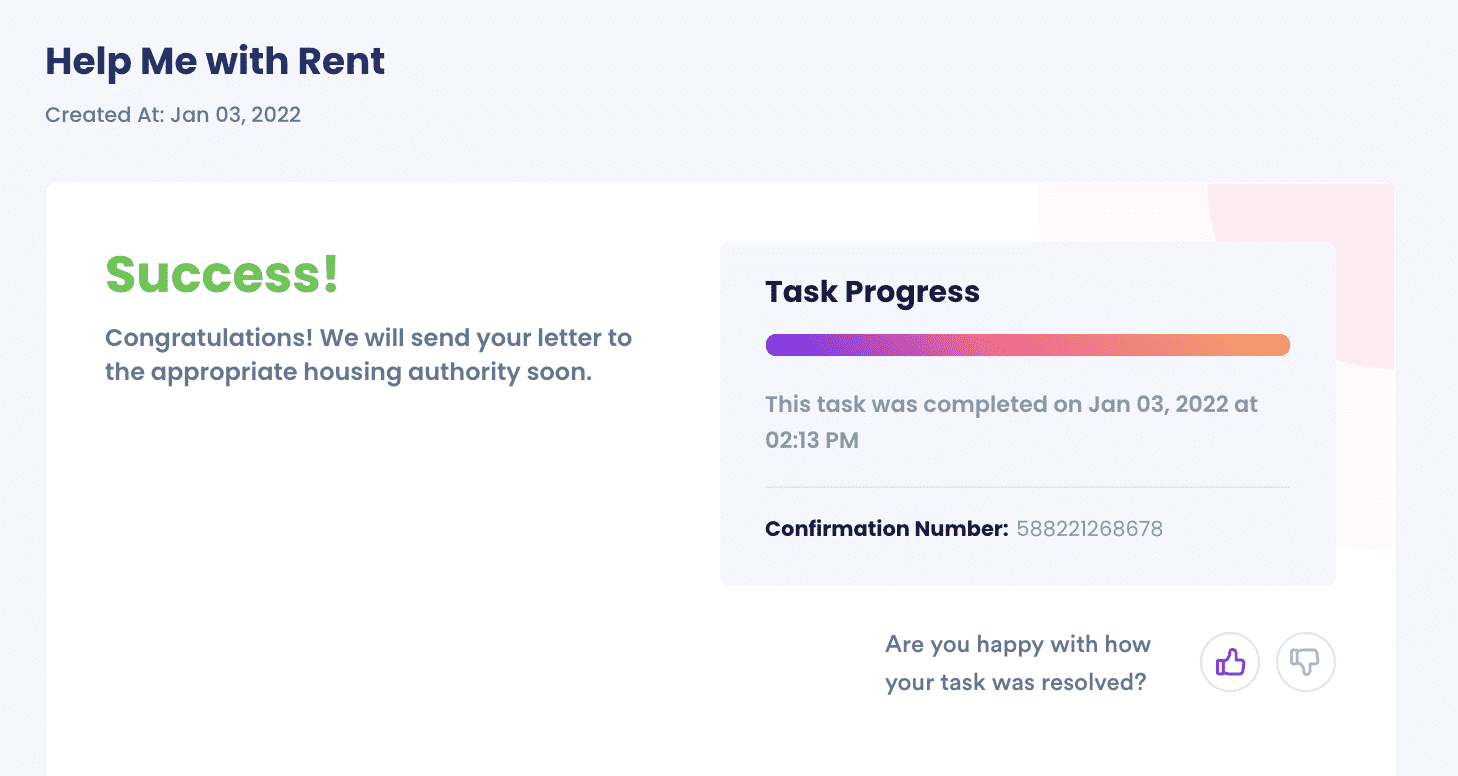How to Claim Rent Assistance in Michigan
There is a lot of unclaimed post-COVID . If you are having trouble applying, DoNotPay can help.
So many people find themselves unable to pay their rent because of the effects of COVID on jobs, bills, and just about every factor of life. While the State of Michigan cannot assist with all of our post-COVID issues, rental assistance is available throughout the state. Most rental relief is coming from federal sources. The Michigan State Housing Development Authority (MSHDA) is responsible for the COVID Emergency Rental Assistance (CERA) program throughout Michigan. Under this program, those struggling to pay their rent and who are considered low-income can qualify to have their rent paid for up to 15 months as long as they meet the eligibility requirements. The program can also help with utility payments.
For longer-term rental assistance, the MSHDA program is also responsible for the state's Section 8 program, which provides government housing or housing vouchers to low-income individuals and families throughout the state. Unfortunately, the Section 8 program is overly full, so not only are they not able to respond to new applications, but even the waiting lists are closed. Within Section 8, the Department of Housing and Urban Development (HUD) pays up to 150% of the HUD Fair Market Rent based on the size of your home and your county of residence. Michigan has the 38th highest rent in the US. The median rents differ between counties. The overall average for a two-bedroom home in most counties is $763. In Ann Arbor, that same median is $1103. A four-bedroom home in most of Michigan has an average of $1,131, while the median for Ann Arbor for a home with four bedrooms is $1,842.
Eligibility for the CERA Program
To qualify for the CERA Program as part of , you must meet the following eligibility requirements:
- The household has less than 80% of the Area Median Income (AMI) for the county where you reside.*
- Individuals in a household who have qualified for unemployment benefits, OR
- Individuals in a household that has had a significant reduction in their income, OR
- Individuals who have experienced financial hardship due to the COVID-19, such as those who have had the virus and have substantial medical bills from their COVID illness
- Individuals in the household can prove a risk of homelessness if they do not receive aid.
- Rent must be past due.
You are not eligible if:
- Households where income exceeds 80% of the AMI.
- Households who cannot legitimately show hardship due to COVID
- Households where one of the members owns the home.
- Households who have not fallen behind on their rent and utility bills.
Documents required to determine eligibility include:
- Completed application for CERA.
- Copy of your state ID
- Copy of the lease agreement.
- Proof of earned income for everyone in the home over 18. It can include proof of income for one month, proof of Unemployment Benefits for one month, a copy of the previous year's 1040 tax form, Food assistance program Notice of Case Action, all utility statements, and a copy of the internet statement. If you have received an eviction notice, a copy of it should be included as well.
Resources for Rent Relief Throughout Michigan
The MSHDA CERA Program is governed by the MSHDA, but some counties remain responsible for the distribution of funds. The MSHDA site for applying online to the CERA program can be accessed through the MSHDA CERA Application.
The CERA Contact List provides the MDHSA offices within the State of Michigan. They are listed by county and include address and phone number.
How to Apply for CERA in Michigan on Your Own
To apply for funds from the CERA program, you will:
- Gather all the documentation listed above under the "Documents required to determine eligibility" subsection.
- Log on to your computer.
- Go to MSHDA CERA Application.
- Click on the "Apply for CERA" button.
- Fill out the application as thoroughly as possible.
- Upload all attachments for the application.
- Click "Submit Application"
- Notify your landlord, so he can go in and fill out his part of the application.
- Receive feedback from CERA program coordinators telling you that your application has been denied due to you forgetting to fill out one small section.
- Re-fill out an application, upload supporting documents again, and submit.
- A few weeks later, get the notice that your application has been approved.
- Funds are disbursed to your landlord.
- Get the most recent utility bill.
- Upload the bill to the CERA site,
- Fill out the application for utility reimbursement.
Qualifying for Rent Relief in Michigan Using DoNotPay
If you are having trouble applying for the CERA program on your own, DoNotPay can help. We can compose a letter to your local housing authority based on your situation and inquire about your best options for receiving assistance. Here are the four steps:
- Search for Rental Assistance on DoNotPay.

- Put together a list of your income, debts, expenses, and assets. If you need help accessing information like your credit report, DoNotPay can help you get your report.

- Let DoNotPay collect your basic information and compose a letter to your local housing authority requesting rental assistance.

- Lastly, DoNotPay will send your letter to your local housing authority.

Why Use DoNotPay to Find Rental Assistance in Michigan
When you use DoNotPay, you will get the responses you are looking for every time. DoNotPay is:
- Fast. Quickly get started by clicking on a button. What could be faster than that?
- Easy. Just a few moments of your time giving DoNotPay some information.
- Successful. DoNotPay always gets things done right.
DoNotPay Offers Solutions to Problems in All Areas
Far more than a tool to discover rental assistance, DoNotPay solves problems in all areas.
If you are looking for a way to get compensated for those annoying robocalls, DoNotPay can help. Do you want to get rid of spam forever from both your texts and your email? DoNotPay can help you with that too. Have you had enough of that overpriced subscription or membership, and now you are ready to cancel them? DoNotPay can help you cancel those with just a click of a button. Are you considering bankruptcy because of a mountain of medical bills? DoNotPay is standing by to help you file. DoNotPay can accomplish a lot in just a little amount of time.
Check out what other problems DoNotPay can solve.
What Else Can DoNot Pay Do?
Aside from rent assistance in Michigan, we can also assist you with the following inquiries:
Helping you with rental assistance is only a drop in the bucket of our services. These are just a few examples of how we can advocate for you:
- Lower my bills
- Make a DMV appointment
- customized to your needs.
- Learn how to negotiate payday loans
- Find missing money
- Take someone to small claims court.
- Reducing my property taxes
To see how many other ways you can discover solutions that you need, visit DoNotPay today.
 By
By